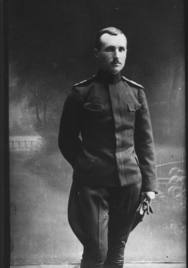The Peshev Insurgency February 9, 2015
Author: Beach Combing | in : Contemporary , trackback
Dimitar Peshev was a middle ranking interwar Bulgarian politician of conservative persuasion. He served briefly as Bulgarian minister of Justice in the mid 1930s, then returned to the back benches with an honorific position in parliament. He survived the Second World War and, miraculously, the communist purges that followed, though he spent a year in prison. He died forgotten by his country in 1973. Today, however, all this has changed and Peshev is one of the most feted of all Bulgarians. Peshev’s bust is to be found at the Council of Europe, there is a Peshev Plaza in New York and there is a ridge in Antarctica named after him (with moon craters the only modern celebrity that matters). So why should Dimitar Peshev’s name excite so much attention? The answer is that in March 1943 Peshev led the resistance to Nazi deportations from Bulgaria and uniquely in Occupied or, as in Bulgaria, ‘bullied’ Europe he resisted using constitutional means.
Peshev had actually voted, apparently reluctantly, for Bulgaria’s anti-semitic legislation in 1941. However, in early 1943 with many others in Bulgaria he became alarmed at reports of a planned roundup of Jewish citizens. The event which transformed Peshev from a worried observer to an agent of change was an interview, curiously enough, with an old political enemy, Dimita Ikonomov. Ikonomov had witnessed in his home town, Dupnitsa, the transit of Thracian Jews: these were Bulgarian Jews living outside the borders of the country, but under Bulgarian protection. Ikonomov had been, with many in the town, so upset by the action, that he had come to tell Peshev of the horror of what he had seen. This was the first confirmation of rumours that Peshev had been hearing but from a reliable source. Peshev now began to collect information and quickly learnt that what had happened in Thrace was planned for Bulgaria itself.
In his postwar biography he describes how he felt obliged to act: ‘I could not remain passive – my conscience and understanding of the grave consequences both for the people involved and for my country did not allow it. It was then that I made the decision to do everything in my power to prevent the execution of a plan that was going to compromise Bulgaria in the eyes of the world and brand it with a mark of shame that it did not deserve. I would not assume any moral, political or any other responsibility for actions that the government had decided to take without consulting the National Assembly or receiving its approval.’ These words, it must be remembered were written in the 1960s before the modern western fascination with the Holocaust, in a Communist country, hostile to the author, for a limited audience. They probably represent the authentic memories of a (then) fifty year old statesman, past his best, who in 1943 had reached his ne plus ultra.
Peshev first attempted to lobby the relevant government bodies, including a dramatic invasion of a government office, but then realizing the limits of this strategy, he organized resistance in the governing party. He wrote an open letter and asked only those in the party (or those supporting the government) to sign it: as an old-parliament hand he had decided that this would have a much more potent effect than any cross party effort. Forty two did so. He then ignored blandishments from the government whips to delay the letter’s release and sent it both to the Prime Minister, Bogdan Filov and the Foreign Secretary, leading to a series of rushed cabinet meetings. The aftermath was messy and unpleasant. Filov and the entire cabinet came to a special caucus in Parliament. Peshev was publicly accused of undermining unity, and each deputy had to vote for the government and against Peshev publicly, one at a time. Of the forty two supporters twelve peeled away under this barracking: thirty remained loyal if not to Peshev then to the letter. The deportations from Bulgaria never began. The government had come up against three threats to its authority, all interestingly from the side of ‘reaction’: a conservative insurgency in Parliament, an unhappy king and a hostile Orthodox Christian leadership. The three were enough, together, to tame a pro-German, anti-semitic executive.
Perhaps 50,000 lives were saved: small beer in those dreadful years, but in 1943, between the swastika and the hammer and sickle, you take what you can get.


